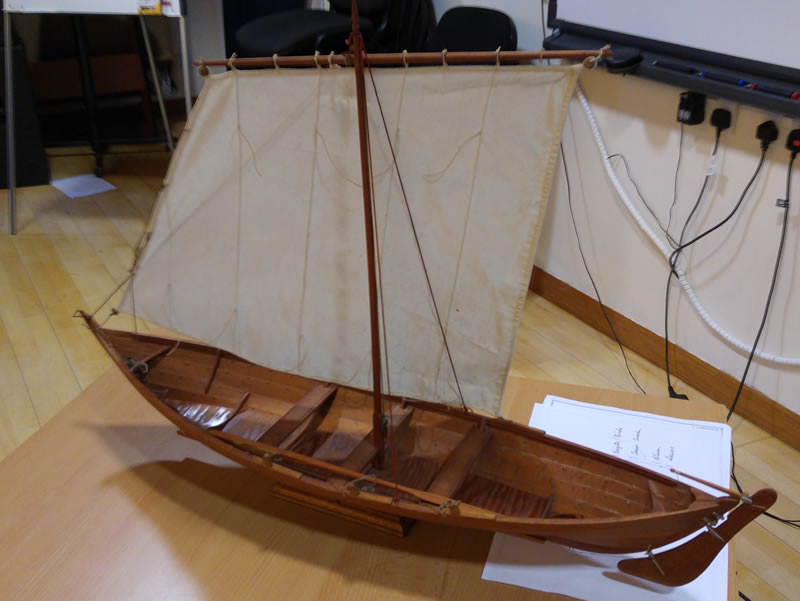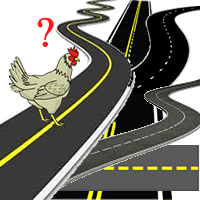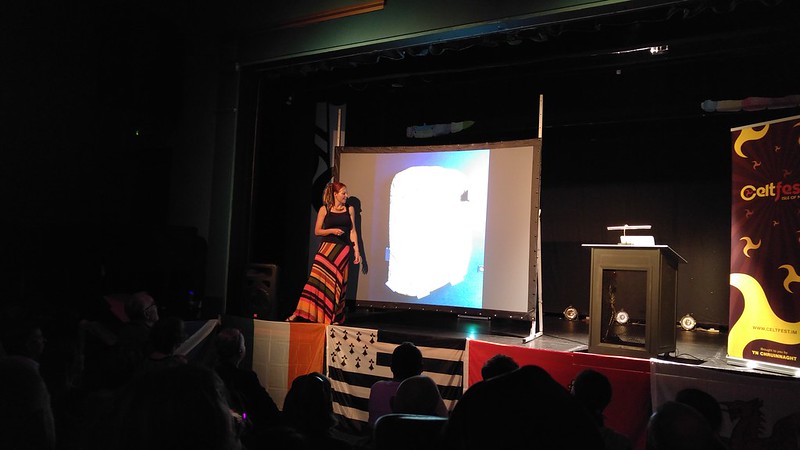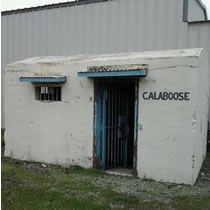My song course has now finished, and I’ll be heading home tomorrow. I’ve learnt a lot of interesting and beautiful Gaelic songs this week, and had a great time. There were some excellent concerts in the evenings, and an end-of-course cèilidh last night, at which each class performed their party piece (a song or two), then there was music, dancing and more singing.
The theme of the course was songs related to the sea. This included songs about boats, sailors, smuggling, rowing, emigration, and other sea-related themes.
There are various expressions in Scottish Gaelic related to the sea:
– muir [murʲ] = the sea. From the Old Irish muir (sea), from the Proto-Celtic *mori (sea), from the Proto-Indo-European *móri (sea).
– cuan [kuən] = ocean; bay, inlet; haven. From the Old Irish cúan (bay, gulf, harbor), from Proto-Indo-European *kapno-, from *keh₂p- (to grasp).
– fairge [farʲagʲə] = sea, ocean; (sea) swell, turbulence of the ocean. From the Old Irish fairrge (sea, ocean).
– sàl [saːl̪ˠ] = the sea; salt water, seawater. From the Old Irish sál (brine, sea water).
– air sàl = at sea
– muireil = naval, maritime; like a sea
– loingeach [l̪ˠɔiŋʲgʲəx] = nautical

There are also quite a few words in Scottish Gaelic for boats:
– bàta [baːʰdə] = boat, craft. From the Old Irish bát, from Old English bāt (boat), from the Proto-Germanic *baitaz, *baitą (boat, small ship), from the Proto-Indo-European *bʰeyd- (to break, split).
– long [l̪ˠɔuŋg] = ship. From the Latin (navis) longa (long ship).
– sgoth [sgɔh] = boat, skiff, large winter fishing-boat, yacht
– curach [kurəx] = coracle, curragh. From the Middle Irish curach, from the Proto-Celtic *korukos (leather boat), probably from the Proto-Indo-European *(s)koro- (leather).
– coit [kɔhdʲ] = small fishing boat, canoe; cat (cargo boat)
– geòlag [gʲɔːl̪ˠag] = small boat or yawl
– bìrlinn [biːr̪l̪ʲɪn̪ʲ] = galley, rowing barge. From the Old Norse byrðingr (“ship of burden” = cargo ship, merchant vessel). (see photo above)
Sources: Am Faclair Beag, Wiktionary and MacBain’s Dictionary
Here are Joy Dunlop‘s conversation class singing a few Gaelic songs:
A bit of dancing:
A bit of piping:
More photos and videos from this trip, and previous trips to Sabhal Mòr Ostaig.








